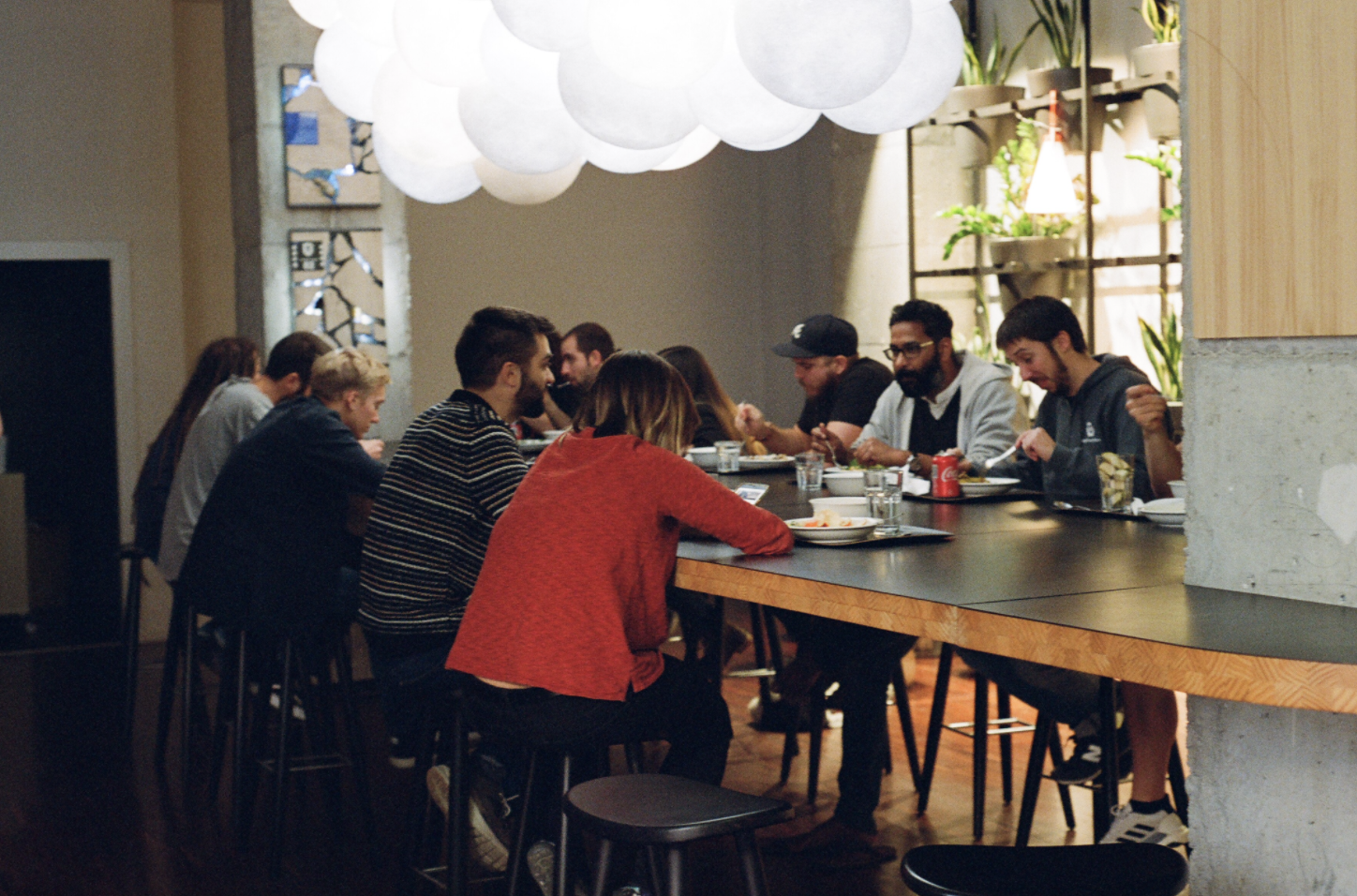Startups have developed a reputation for unusual approaches to workplace culture and employee motivation. Some throw a few ping-pong tables into their office, others go for zany away days — and Barcelona-based survey company Typeform has introduced its very own merit-based currency, for employees to trade amongst themselves.
Employees are given a fresh batch of ‘Typecoins’ at the beginning of each month, which they’re then encouraged to award to colleagues who’ve helped them in some way. The Typecoins you’re given by colleagues can then be cashed in to be spent on things like Amazon vouchers, Starbucks coffees or Uber rides.
It’s a scheme that adds a monetary incentive to positive cooperative behaviour, and a social one too: employees are able to see which team members have received the most (and the least) Typecoins each month on a live leaderboard.
To an outsider, this might seem like a strange case of workplace social engineering. Why leave it to management to motivate employees, when you can create a shadow economy in the office, which pits workers off against each other in pursuit of rising to the top of the Typecoin pile?
But what’s the reality of the scheme: does it create a tokenised workplace popularity contest — or is it just a nice perk for staff to save up for the latest PlayStation 5 games with?
“We didn’t see the value in it”
“Initially when we looked at it, we didn’t see the value in it,” says Jenny Buch, Typeform’s head of people. She joined the company in 2019, after the Typecoin scheme had been introduced.
‘Typecoins’ are the name the company gives to a scheme provided by Bonusly, a Colorado-based startup which has worked with well known organisations like Hulu, Headspace and SurveyMonkey.
Employees receive 250 Typecoins each month to give to their teammates; this equates to €25 in real money. It was the ‘real money’ part of the scheme which Buch wasn’t so keen on at first.
“The idea of Bonusly initially, I think, is motivation of employees,” she explains. “I do not personally believe in that. We don't believe in motivation through monetary incentives.”

“With any kind of rewarding system, as soon as you put a monetary incentive to an achievement, and the reward itself is not the ‘exciting project to be worked on’ it shifts the focus away from ‘doing the best you can to have an impact’ to ‘getting the reward’,” she adds.
This concern was reflected in the thoughts of one Typeformer Sifted spoke to: “Humans will change their behaviour to benefit as much as possible from systems, even if that behaviour isn't desirable on the surface (e.g. colluding with others to receive a continuous stream of Typecoins).”
“Colluding” could otherwise be seen as “helping”, but Buch says there is a danger that the promise of monetary reward has the potential to encourage too much helpfulness.
“You have individual contributors that generally are always happy to give someone else a hand when needed, despite their own workload and deadlines,” she says. “However, this can lead to them being distracted from their own missions, which is not ideal.”
Outcasts of the Typecoin economy
Another Typeformer added that certain employees are better positioned to take advantage of the scheme, due to the nature of their roles. People who work with multiple teams are generally in a better position to prosper, for example. “Logan used to write copy for basically every team in the company; he'd hoover them up constantly. Me and Gwyn were out on the fringes making content in insular groups, so got less,” Andre, a content producer, explained via WhatsApp.
“Yes, we were the unhappy underdogs,” Gwyn, glumly replied.
Buch agrees that the Typecoin system can be a harsh one for economic outcasts.
“Absolutely, some teams just naturally have more abilities to get more Typecoins,” she explains.
Different personality types suffer too: “Some Typeformers are more introverted and might be less expressive so they might lose when it comes to receiving Typecoins.”
While Buch doesn’t have data to back this up, the Typecoin users that Sifted spoke to agreed that the system doesn’t work so well for more modest employees.
Typecoins don't favour meek, humble people.
“Typecoins don't favour meek, humble people,” said one. “Those who benefitted were those who spoke up about what they were doing and explicitly asked for coins (usually with a tongue-out emoji to say ‘I'm joking but not really joking’).”
A human touch
Buch is keen to stress that Bonusly and Typecoins are not used as a means to track employees performance, but are more enjoyed by the team as a way of saying thank you for everyday kindnesses.
“Bonusly is a little bit of a legacy thing. People love it. Typeformers love it. But it's more like a human-to-human, ‘I like you, thank you for being that good colleague’ recognition,” she says.
And while this might not be an accurate metric for employee performance, in the time of Covid-19 and coworkers being scattered around home offices, Typecoins are proving a valuable touch point for human interaction.

“I think now it's more important,” says Buch. “I can easily say thank you for something that is meaningful to me as a human, without having always ‘performance performance’ in my mind. So I think that's a huge plus and something that Typeformers use a lot.”
I can easily say thank you for something that is meaningful to me as a human.
This is the right way to view such schemes, says Mariam Gyulumyan, chief executive and founder of Lucky Carrot, an Armenian all-in-one employee engagement platform, which includes a peer-to-peer recognition system similar to Bonusly.
“These are not KPI tools, you don't judge people on KPIs. People say thank you to each other for very different reasons,” she says.
“Lucky Carrot solves employee disengagement,” she adds. “You as a company want to have your employees stay engaged, to retain your talent."
Lucky Carrot currently works with startups like The Crowdfunding Formula, and big multinationals like Phillip Morris.
Buch adds that Typeform have introduced a new HR tool, 15Five, to more comprehensively record team members’ contributions to projects and to help with their career progression.
“What this tool also does is documenting 1:1s between managers and employees, and also the review process, so it's documenting your personal wins and challenges, what feedback your manager gave you and what feedback you gave to your manager,” she explains.
And while peer-to-peer rewards might seem like a novel means of social engineering in the name of employee motivation, all the Typerformers that Sifted spoke to saw them as a nice bonus to have, rather than anything so sinister. And during a pandemic, every little perk helps.



